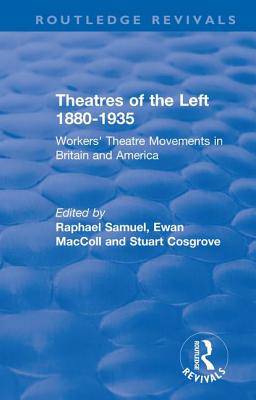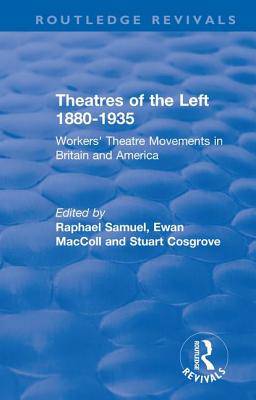
- Retrait gratuit dans votre magasin Club
- 7.000.000 titres dans notre catalogue
- Payer en toute sécurité
- Toujours un magasin près de chez vous
- Retrait gratuit dans votre magasin Club
- 7.000.0000 titres dans notre catalogue
- Payer en toute sécurité
- Toujours un magasin près de chez vous
Routledge Revivals: Theatres of the Left 1880-1935 (1985)
Workers' Theatre Movements in Britain and America
Description
First published in 1985, this book examines how workers theatre movements intended their performances to be activist -- perceiving art as a weapon of struggle and enlightenment -- and an emancipatory act. An introductory study relates left-wing theatre groupings to the cultural narratives of contemporary British socialism. The progress of the Workers' Theatre Movement (1928-1935) is traced from simple realism to the most brilliant phase of its Russian and German development alongside which the parallel movements in the United States are also examined. A number of crucial texts are reprints as well as stage notes and glimpses of the dramaturgical controversies which accompanied them.
Spécifications
Parties prenantes
- Editeur:
Contenu
- Nombre de pages :
- 390
- Langue:
- Anglais
- Collection :
Caractéristiques
- EAN:
- 9781138214460
- Date de parution :
- 31-05-18
- Format:
- Livre broché
- Format numérique:
- Trade paperback (VS)
- Dimensions :
- 138 mm x 216 mm
- Poids :
- 719 g

Les avis
Nous publions uniquement les avis qui respectent les conditions requises. Consultez nos conditions pour les avis.





